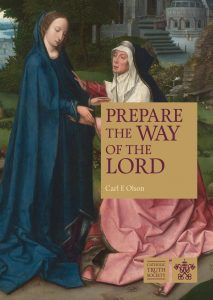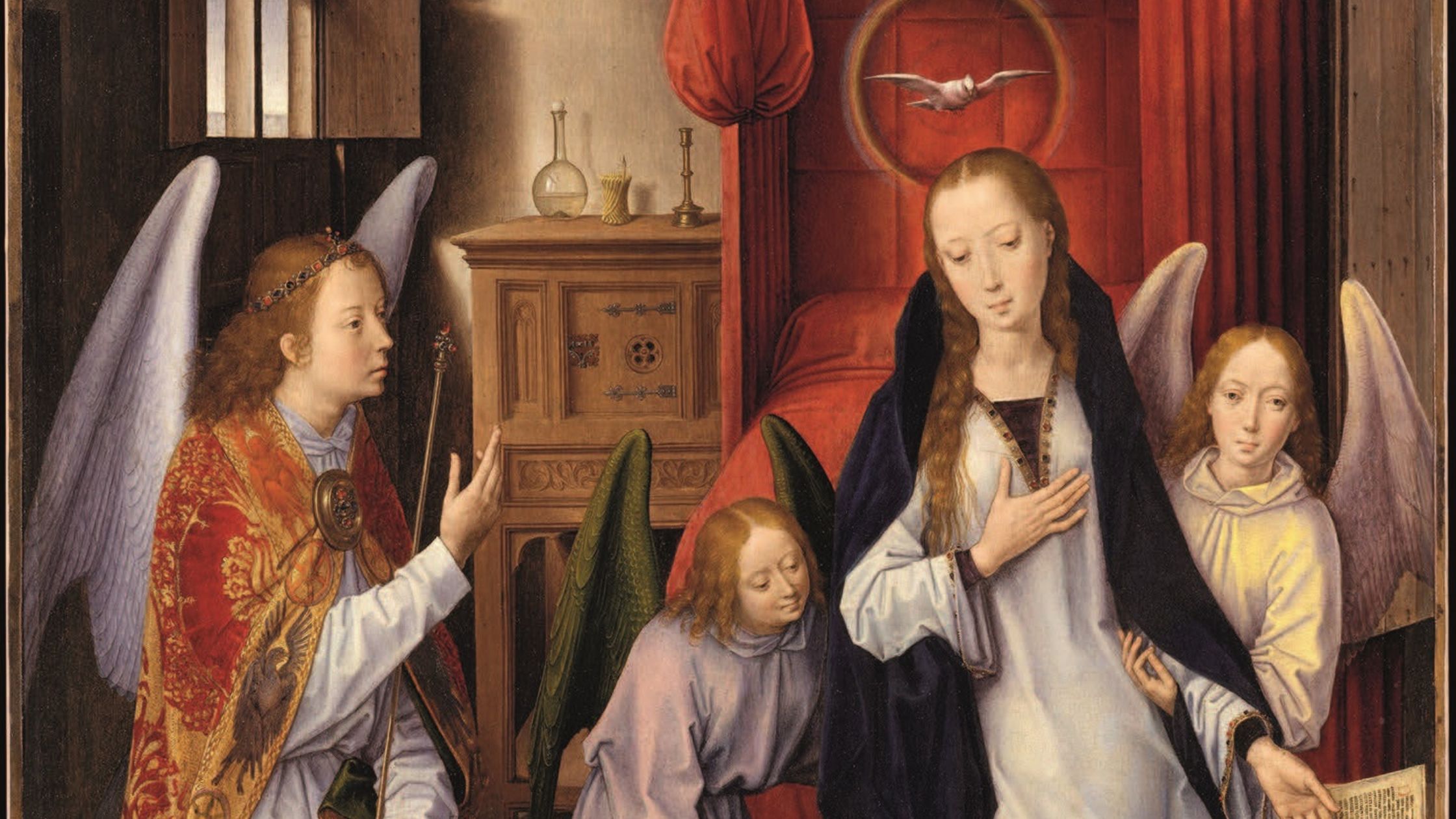First Sunday of Advent – Year B
First Reading: Is 63:16-17; 64:1,3-8
You, Lord, yourself are our Father,
Our Redeemer is your ancient name.
Why, Lord, leave us to stray from your ways
and harden our hearts against fearing you?
Return, for the sake of your servants,
the tribes of your inheritance.
Oh, that you would tear the heavens open and come down
– at your Presence the mountains would melt.
No ear has heard,
no eye has seen
any god but you act like this
for those who trust him.
You guide those who act with integrity
and keep your ways in mind.
You were angry when we were sinners;
we had long been rebels against you.
We were all like men unclean,
all that integrity of ours like filthy clothing.
We have all withered like leaves
and our sins blew us away like the wind.
No one invoked your name
or roused himself to catch hold of you.
For you hid your face from us
and gave us up to the power of our sins.
And yet, Lord, you are our Father;
we the clay, you the potter,
we are all the work of your hand.
Responsorial Psalm: Ps 79:2-3,15-16,18-19. R. v.4
R. God of hosts, bring us back;
let your face shine on us and we shall be saved.
O shepherd of Israel, hear us,
shine forth from your cherubim throne.
O Lord, rouse up your might,
O Lord, come to our help. R.
God of hosts, turn again, we implore,
look down from heaven and see.
Visit this vine and protect it,
the vine your right hand has planted. R.
May your hand be on the man you have chosen,
the man you have given your strength.
And we shall never forsake you again:
give us life that we may call upon your name. R.
Second Reading: 1 Cor 1:3-9
May God our Father and the Lord Jesus Christ send you grace and peace.
I never stop thanking God for all the graces you have received through Jesus Christ. I thank him that you have been enriched in so many ways, especially in your teachers and preachers; the witness to Christ has indeed been strong among you so that you will not be without any of the gifts of the Spirit while you are waiting for our Lord Jesus Christ to be revealed; and he will keep you steady and without blame until the last day, the day of our Lord Jesus Christ, because God by calling you has joined you to his Son, Jesus Christ; and God is faithful.
Gospel: Mk 13:33-37
Jesus said to his disciples: ‘Be on your guard, stay awake, because you never know when the time will come. It is like a man travelling abroad: he has gone from home, and left his servants in charge, each with his own task; and he has told the doorkeeper to stay awake. So stay awake, because you do not know when the master of the house is coming, evening, midnight, cockcrow, dawn; if he comes unexpectedly, he must not find you asleep. And what I say to you I say to all: Stay awake!’
Reflection
Awaken and await!
What is Advent? Pope Benedict XVI, in a homily given on the First Sunday of Advent in 2008, noted that the Latin word adventus is one that “could be translated by ‘arrival’, ‘coming’ or ‘presence’” (Pastoral Visit to the Basilica of Saint Lawrence Outside the Walls, homily of his holiness Benedict XVI, First Sunday of Advent, 30th November 2008). It reminds us of the first coming of Christ two thousand years ago, as well as the present coming of Christ in and through the Church, especially in the Eucharist. It also orientates us to the future coming of Christ, at the moment of our death and at the end of time.
Pope Benedict XVI further stated that Advent is “a time of expectation and hope, a privileged time for listening and reflection, as long as we let ourselves be guided by the liturgy, which invites us to advance to meet the Lord who comes.”
Today’s readings present many of these interrelated words and truths so that we might contemplate more deeply the meaning – for today and for eternity – of this great season. There are seven words in particular that I will focus on here: the first three are words addressed by man to God; the next three are words addressed by God to man; and the final word has to do with God meeting man face-to-face.
The first three are from the prophet Isaiah and Psalm 80: return, come, and save. The reading from the Book of Isaiah is taken from a lengthy poem of confession and lament (Is 63:7–64:11) written after the return from exile in 538 BC, prior to the rebuilding of the temple in Jerusalem. There are two intertwined confessions in the passage, one being an honest admission of grave sin and the other a declaration of trust in God’s saving power and fatherly mercy. “Return,” the author beseeches, “for the sake of your servants,” as he longs for a palpable, even shocking, display of God’s presence among his people. God, however, had hidden his face from the sinful people; yet, despite the silence, there is hope that God, being a father, will again take up and mould his people as a potter moulds clay.
Similar expressions of penance and hope are voiced in the responsorial psalm, also a lament. “Lord, make us turn to you,” cries the Psalmist, “let us see your face and we shall be saved.” To see the face of God is to be cleansed of sin and embraced as a child of the Father. The psalm is filled with a yearning that finds fulfilment in the Incarnation: “Rouse your power and come to save us.” It points to that moment in time when the power of the Most High overshadowed Mary, who became pregnant with a son who “will save his people from their sins” (Lk 1:35; Mt 1:21). In all of this, God initiates; man calls out for mercy, but must wait until God acts.
The next three words or exhortations are variations on the same central theme: wait, watch, be alert. The Apostle Paul assumed that waiting “for the revelation of our Lord Jesus Christ” is the constant and expected status of every disciple of Christ. Jesus repeatedly told his disciples, “Be on your guard” (Mk 13:9, 23, 33, 37). This is what Advent is all about: being watchful, attentive, and alert. This means being aware of our need for repentance and our need for a deeper fellowship with Jesus Christ our Lord.
We are to be patient “until the coming of the Lord” (Jm 5:7), and to “waiting for the mercy of our Lord Jesus Christ that leads to eternal life” (Jude 1:21). In doing so, we express our belief in the first Advent, when God became man, and in the coming Advent, when the God-man will come again in glory. Which brings us to the seventh word: “day”. That is, the “day of our Lord Jesus Christ”, when the Son of God will judge the living and the dead, rendering to each man according to his works and response to God’s grace. “The Advent cry of hope”, says Benedict XVI, “then expresses…our extreme need of salvation.”
Prayerfully discover the meaning of Christmas:
 Prayerfully discover the meaning of Christmas with this collection of meditations on the Scriptures and prayers of the Advent season. Reflecting upon the Sunday Gospels, Carl E Olson highlights their depth and helps us to apply the Scriptures to our own lives.
Prayerfully discover the meaning of Christmas with this collection of meditations on the Scriptures and prayers of the Advent season. Reflecting upon the Sunday Gospels, Carl E Olson highlights their depth and helps us to apply the Scriptures to our own lives.
Olson continues this Advent meditation by offering a line-by-line contemplation on the Hail Mary, illuminating the significance of each word so as to deepen our experience of this integral prayer. By praying the Hail Mary mindfully, we discover how to walk through Advent with Mary, ready to welcome her Son at Christmas.
Click here to order now for more Advent meditations and reflections
